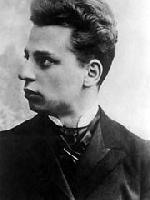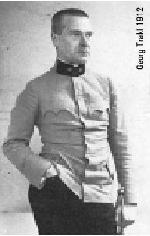Mary Gordon, Louis de Bernières, Delmore Schwartz
Die amerikanische Schriftstellerin Mary Gordon wurde geboren am 8. Dezember 1949 in Far Rockaway, New York. Gordon ist Professorin für Englisch am Barnard College und eine der bekanntesten amerikanischen Autorinnen der Gegenwart. Sie ist Trägerin des O'Henry Prize und hat mehrere Romane, Kurzgeschichten und Memoirs veröffentlicht. Sie lebt in New York City.
Aus: Pearl (2005)
We may as well begin with the ride home.
It is Christmas night, 1998. The ending of a day that was not unseasonable, except in its failure to fulfill the sentimental wish for spur-of-the moment snow. The sky: gray; the air: cold, with a high of 33 degrees Fahrenheit. Palpable winter but not winter at its worst. Fewer of the poor than usual died on that day of causes traceable to the weather. Perhaps the relatively unimpressive showing of weather-related deaths was due to the relative clemency of the air, the relative windlessness, the relative benevolence that could be counted on by the poor to last, perhaps, eight days, December twenty-fourth through the first of January.
Ten o'clock Christmas night. Four friends drive south on the way home after a day of celebration. They have had Christmas dinner at the house of other friends, a weekend and vacation house in the mountains north of New York. One couple sits in the front of a brown Honda Accord, the other in the back. They are all in their fifties. All of their children are on other continents: one in Brazil, working on an irrigation project; one in Japan, teaching English; one in Ireland studying the Irish language at Trinity College. They were determined not to have a melancholy Christmas, and for the most part they have not.
They leave Maria Meyers off first since she lives in the most northerly part of the city or, as they would say, the farthest uptown.
She opens the door of her apartment on the sixth or top floor of a building on the corner of La Salle Street and Claremont Avenue, a block west of Broadway, a block south of 125th Street, on the margins of Harlem, at the tip end of the force field of Columbia University. Before she takes off her brown boots lined with tan fur, her green down coat, her rose-colored scarf, her wool beret, also rose, she sees the red light of her answering machine.”
Mary Gordon (Far Rockaway, 8. Dezember 1949)
Der britische Schriftsteller Louis de Bernières wurde am 8. Dezember 1954 in London geboren. Er wuchs im Nahen Osten als Sohn eines britischen Offiziers auf. Nach der Schule schrieb er sich in der Militärakademie Sandhurst ein, verließ die britische Militärschule jedoch bald darauf wieder. In der Folgezeit hielt sich de Bernières in Lateinamerika auf, bevor er wieder nach London zurückkehrte und ein Philosophiestudium aufnahm. Bis er mit dem Roman Captain Corelli's Mandolin 1994 seinen ersten Erfolg verzeichnen konnte, arbeitete er als Landschaftsgärtner und Kfz-Mechaniker. Sein Roman Traum aus Stein und Federn präsentiert eine in einem anatolischen Dorf spielende Liebesgeschichte auf der Folie des untergehenden Osmanischen Reiches. Über die Jahre erhielt de Bernières (in verschiedenen Kategorien) den Commonwealth Writers Prize; 1991 für The War of Don Emmanuel's Nether Parts, 1992 für Señor Vivo and the Coca Lord, 1995 für Captain Corelli's Mandolin und 2005 für Birds Without Wings. Außerdem wurde er 1997 mit einem der British Book Awards und 2004 mit dem Whitbread Novel Award ausgezeichnet.
Aus: Birds Without Wings
“Yusuf the Tall loved all his children equally, with a passionate adoration that, when he thought about it, sometimes made him lachrymose. If his life were like a garden, then his daughters would be like the roses growing alongside its walls, and his sons would be like young trees that formed a palisade against the world. When they were small he devoted happy hours to their entertainment, and when they grew older he hugged them until their eyes bulged and they thought that their ribs would crack. He had grown to love his wife too, partly because this is what happens when a wife is well chosen, and partly because from her loins had sprung these brooks and becks of happiness.
But now Yusuf the Tall did not know what to do with his hands. It seemed as though they were behaving on their own. The thumb and middle finger of his left hand stroked across his eyeballs, meeting at the bridge of his nose. It was comforting, perhaps, for a scintilla of time. There was no comfort longer than that in this terrible situation. Sometimes his hands lay side by side on his face, the tips of his thumbs touching the lobes of his ears. He had thrown off his fez so that they could stroke his hair backwards, coming to rest on the back of his neck. The maroon fez lay in a corner on its side, so that his wife Kaya kept glancing at it. Despite this awful emergency, and the drama in which she was caught up, her instinct was to tidy it away, even if it were only to set it upright. She sat on the low divan, kneading her fingers, biting her lip and looking up at her husband. She was as helpless as one who stands before the throne of God.“
Louis de Bernières (Londen, 8. Dezember 1954)
Der amerikanische Dichter Delmore Schwartz wurde am * 8. Dezember 1913 in Brooklyn, New York, geboren. Seine erstes veröffentlichtes Werk war die 1937 erschienene Kurzgeschichte In Dreams Begin Responsibilities. Diese und andere Kurzgeschichten und Gedichte erschienen in seinem ersten Buch In Dreams Begin Responsibilities and Other Stories (1938). Es wurde gut aufgenommen und Schwartz wurde zu einer bekannten Figur in den intellektuellen Zirkeln New Yorks. In den nächsten drei Jahrzehnten publizierte Schwartz zahlreiche Geschichten, Gedichte und Stücke und gab von 1943 bis 1955 die Partisan Review heraus. 1959 war er der Jüngste unter den mit dem Bollingen Prize Geehrten. Er erhielt den Preis für eine Sammlung von Gedichten, die in jenem Jahr erschien (Summer Knowledge: New and Selected Poems). Diese Sammlung enthält auch Calmly We Walk Through This April's Day. Sein späteres Leben war vom Alkoholismus und schließlich vom Wahnsinn geprägt; die Geschichte dieser Abwärtsspirale, die seinem ursprünglichen Erfolg folgte, liegt Saul Bellow's Roman Humboldt's Gift zugrunde.
At This Moment Of Time
Some who are uncertain compel me. They fear
The Ace of Spades. They fear
Loves offered suddenly, turning from the mantelpiece,
Sweet with decision. And they distrust
The fireworks by the lakeside, first the spuft,
Then the colored lights, rising.
Tentative, hesitant, doubtful, they consume
Greedily Caesar at the prow returning,
Locked in the stone of his act and office.
While the brass band brightly bursts over the water
They stand in the crowd lining the shore
Aware of the water beneath Him. They know it. Their eyes
Are haunted by water
Disturb me, compel me. It is not true
That "no man is happy," but that is not
The sense which guides you. If we are
Unfinished (we are, unless hope is a bad dream),
You are exact. You tug my sleeve
Before I speak, with a shadow's friendship,
And I remember that we who move
Are moved by clouds that darken midnight.
Late Autumn In Venice
(After Rilke)
The city floats no longer like a bait
To hook the nimble darting summer days.
The glazed and brittle palaces pulsate and radiate
And glitter. Summer's garden sways,
A heap of marionettes hanging down and dangled,
Leaves tired, torn, turned upside down and strangled:
Until from forest depths, from bony leafless trees
A will wakens: the admiral, lolling long at ease,
Has been commanded, overnight -- suddenly --:
In the first dawn, all galleys put to sea!
Waking then in autumn chill, amid the harbor medley,
The fragrance of pitch, pennants aloft, the butt
Of oars, all sails unfurled, the fleet
Awaits the great wind, radiant and deadly.
Delmore Schwartz (8. Dezember 1913 – 11. Juli 1966)
Aus: Pearl (2005)
We may as well begin with the ride home.
It is Christmas night, 1998. The ending of a day that was not unseasonable, except in its failure to fulfill the sentimental wish for spur-of-the moment snow. The sky: gray; the air: cold, with a high of 33 degrees Fahrenheit. Palpable winter but not winter at its worst. Fewer of the poor than usual died on that day of causes traceable to the weather. Perhaps the relatively unimpressive showing of weather-related deaths was due to the relative clemency of the air, the relative windlessness, the relative benevolence that could be counted on by the poor to last, perhaps, eight days, December twenty-fourth through the first of January.
Ten o'clock Christmas night. Four friends drive south on the way home after a day of celebration. They have had Christmas dinner at the house of other friends, a weekend and vacation house in the mountains north of New York. One couple sits in the front of a brown Honda Accord, the other in the back. They are all in their fifties. All of their children are on other continents: one in Brazil, working on an irrigation project; one in Japan, teaching English; one in Ireland studying the Irish language at Trinity College. They were determined not to have a melancholy Christmas, and for the most part they have not.
They leave Maria Meyers off first since she lives in the most northerly part of the city or, as they would say, the farthest uptown.
She opens the door of her apartment on the sixth or top floor of a building on the corner of La Salle Street and Claremont Avenue, a block west of Broadway, a block south of 125th Street, on the margins of Harlem, at the tip end of the force field of Columbia University. Before she takes off her brown boots lined with tan fur, her green down coat, her rose-colored scarf, her wool beret, also rose, she sees the red light of her answering machine.”
Mary Gordon (Far Rockaway, 8. Dezember 1949)
Der britische Schriftsteller Louis de Bernières wurde am 8. Dezember 1954 in London geboren. Er wuchs im Nahen Osten als Sohn eines britischen Offiziers auf. Nach der Schule schrieb er sich in der Militärakademie Sandhurst ein, verließ die britische Militärschule jedoch bald darauf wieder. In der Folgezeit hielt sich de Bernières in Lateinamerika auf, bevor er wieder nach London zurückkehrte und ein Philosophiestudium aufnahm. Bis er mit dem Roman Captain Corelli's Mandolin 1994 seinen ersten Erfolg verzeichnen konnte, arbeitete er als Landschaftsgärtner und Kfz-Mechaniker. Sein Roman Traum aus Stein und Federn präsentiert eine in einem anatolischen Dorf spielende Liebesgeschichte auf der Folie des untergehenden Osmanischen Reiches. Über die Jahre erhielt de Bernières (in verschiedenen Kategorien) den Commonwealth Writers Prize; 1991 für The War of Don Emmanuel's Nether Parts, 1992 für Señor Vivo and the Coca Lord, 1995 für Captain Corelli's Mandolin und 2005 für Birds Without Wings. Außerdem wurde er 1997 mit einem der British Book Awards und 2004 mit dem Whitbread Novel Award ausgezeichnet.
Aus: Birds Without Wings
“Yusuf the Tall loved all his children equally, with a passionate adoration that, when he thought about it, sometimes made him lachrymose. If his life were like a garden, then his daughters would be like the roses growing alongside its walls, and his sons would be like young trees that formed a palisade against the world. When they were small he devoted happy hours to their entertainment, and when they grew older he hugged them until their eyes bulged and they thought that their ribs would crack. He had grown to love his wife too, partly because this is what happens when a wife is well chosen, and partly because from her loins had sprung these brooks and becks of happiness.
But now Yusuf the Tall did not know what to do with his hands. It seemed as though they were behaving on their own. The thumb and middle finger of his left hand stroked across his eyeballs, meeting at the bridge of his nose. It was comforting, perhaps, for a scintilla of time. There was no comfort longer than that in this terrible situation. Sometimes his hands lay side by side on his face, the tips of his thumbs touching the lobes of his ears. He had thrown off his fez so that they could stroke his hair backwards, coming to rest on the back of his neck. The maroon fez lay in a corner on its side, so that his wife Kaya kept glancing at it. Despite this awful emergency, and the drama in which she was caught up, her instinct was to tidy it away, even if it were only to set it upright. She sat on the low divan, kneading her fingers, biting her lip and looking up at her husband. She was as helpless as one who stands before the throne of God.“
Louis de Bernières (Londen, 8. Dezember 1954)
Der amerikanische Dichter Delmore Schwartz wurde am * 8. Dezember 1913 in Brooklyn, New York, geboren. Seine erstes veröffentlichtes Werk war die 1937 erschienene Kurzgeschichte In Dreams Begin Responsibilities. Diese und andere Kurzgeschichten und Gedichte erschienen in seinem ersten Buch In Dreams Begin Responsibilities and Other Stories (1938). Es wurde gut aufgenommen und Schwartz wurde zu einer bekannten Figur in den intellektuellen Zirkeln New Yorks. In den nächsten drei Jahrzehnten publizierte Schwartz zahlreiche Geschichten, Gedichte und Stücke und gab von 1943 bis 1955 die Partisan Review heraus. 1959 war er der Jüngste unter den mit dem Bollingen Prize Geehrten. Er erhielt den Preis für eine Sammlung von Gedichten, die in jenem Jahr erschien (Summer Knowledge: New and Selected Poems). Diese Sammlung enthält auch Calmly We Walk Through This April's Day. Sein späteres Leben war vom Alkoholismus und schließlich vom Wahnsinn geprägt; die Geschichte dieser Abwärtsspirale, die seinem ursprünglichen Erfolg folgte, liegt Saul Bellow's Roman Humboldt's Gift zugrunde.
At This Moment Of Time
Some who are uncertain compel me. They fear
The Ace of Spades. They fear
Loves offered suddenly, turning from the mantelpiece,
Sweet with decision. And they distrust
The fireworks by the lakeside, first the spuft,
Then the colored lights, rising.
Tentative, hesitant, doubtful, they consume
Greedily Caesar at the prow returning,
Locked in the stone of his act and office.
While the brass band brightly bursts over the water
They stand in the crowd lining the shore
Aware of the water beneath Him. They know it. Their eyes
Are haunted by water
Disturb me, compel me. It is not true
That "no man is happy," but that is not
The sense which guides you. If we are
Unfinished (we are, unless hope is a bad dream),
You are exact. You tug my sleeve
Before I speak, with a shadow's friendship,
And I remember that we who move
Are moved by clouds that darken midnight.
Late Autumn In Venice
(After Rilke)
The city floats no longer like a bait
To hook the nimble darting summer days.
The glazed and brittle palaces pulsate and radiate
And glitter. Summer's garden sways,
A heap of marionettes hanging down and dangled,
Leaves tired, torn, turned upside down and strangled:
Until from forest depths, from bony leafless trees
A will wakens: the admiral, lolling long at ease,
Has been commanded, overnight -- suddenly --:
In the first dawn, all galleys put to sea!
Waking then in autumn chill, amid the harbor medley,
The fragrance of pitch, pennants aloft, the butt
Of oars, all sails unfurled, the fleet
Awaits the great wind, radiant and deadly.
Delmore Schwartz (8. Dezember 1913 – 11. Juli 1966)
froumen - 8. Dez, 18:52



